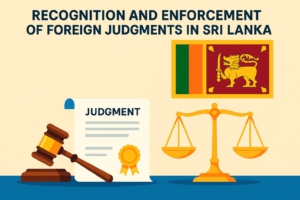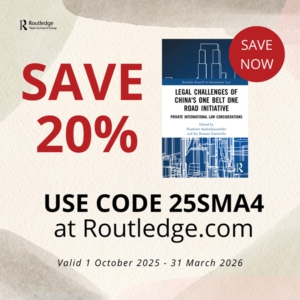Views
Brexit and PIL – Belgian Supreme Court confirms the application of the 2005 Hague Convention to jurisdiction clauses designating UK courts concluded after 1 October 2015
By Guillaume Croisant (Linklaters LLP)
The United Kingdom deposited an instrument of accession to the Hague Convention of 30 June 2005 on Choice of Court Agreements (the “Convention”) on 28 September 2020. This instrument of accession became effective after the Brexit’s transition period, on 1 January 2021, and gained binding force within the UK legal order following the adoption of the Private International Law (Implementation of Agreements) Act 2020.
As many readers will be aware, a controversy exists regarding the temporal scope of the Convention. It applies to exclusive choice of court agreements concluded after its entry into force for the State of the chosen court and to disputes initiated after its entry into force for the State of the seized court. EU Member States have been bound by the Hague Convention since its approval by the European Union on 1 October 2015, but what about the UK after its withdrawal from the EU?
According to a first viewpoint, reflected in the UK’s instrument of accession, ” In accordance with Article 30 of the 2005 Hague Convention, the United Kingdom became bound by the Convention on 1 October 2015 by virtue of its membership of the European Union, which approved the Convention on that date.”
Conversely, under a second viewpoint (apparently shared by the European Commission in its ‘Notice to stakeholders – Withdrawal of the United Kingdom and EU rules in the field of civil justice and private international law’ dated 27 August 2020, p. 9), the Convention could only apply after the United Kingdom’s ‘independent’ ratification, which occurred on 1 January 2021. If this second perspective were accepted, jurisdiction agreements concluded before this date would not benefit from the mutual recognition system established by the Convention.
In a judgment (in French) dated 27 March 2025 (C.24.0012.F), the Belgian Supreme Court (Court de Cassation/Hof van Cassatie) ruled in favour of the first viewpoint, holding that “The Hague Convention of 30 June 2005 has been applicable to the United Kingdom as a bound State, owing to the European Union’s approval of the Convention, from 1 October 2015 until 31 December 2020, and as a contracting party from 1 January 2021. The argument, in this regard, that the United Kingdom ceased to be bound by the Convention following its withdrawal from the European Union on 1 February 2020, is without legal basis.”
Foreign Sovereign Immunity and Historical Justice: Inside the US Supreme Court’s Restrictive Turn in Holocaust-Related Cases

By Livia Solaro, PhD candidate at Maastricht University, working on the transnational restitution of Nazi-looted art
On 21 February 2025, the US Supreme Court issued a ruling in Republic of Hungary v. Simon,[1] a Holocaust restitution case with a lengthy procedural history. Delivering this unanimous decision, Justice Sotomayor confirmed the restrictive approach to cases involving foreign states inaugurated in 2021 by Federal Republic of Germany v. Philipp.[2] In light of the importance of US practice for the development of customary law around sovereign immunity,[3] and its impact on questions of historical justice and transnational accountability, the Simon development deserves particular attention. Read more
Legislative direction for recognition of foreign judgments in Sri Lanka: A new sign-post in the private international law landscape
This post was written by Rose Wijeyesekera, Professor of Private and Comparative Law, Chair / Department of Private and Comparative Law – Faculty of Law, University of Colombo

Introduction
Sri Lanka (formerly known as ‘Ceylon’) is an island in the Indian Ocean, and is home to a total population of 21,763,170, consisting of Sinhalese 74.9%, Tamils 15.4%, Muslims 9.3%, and 0.5% consisting of others such as Veddhas, Burghers, and gypsies.The legal system of this island nation is a unique blend of native laws and the laws that were placed by the colonial powers from 1505 to 1947, when the country gained independence. Since then, Sri Lanka has been a democratic republic and a Unitary State governed by a constitution. The Sri Lankan legal system is primarily based on Roman-Dutch law, inherited from its colonial past under the Dutch, and English common law introduced by the British colonial rulers. Apart from these two, the legal system incorporates elements of Kandyan law (representing indigenous customs of the Sinhalese), Tesawalamai(customary laws of the Tamils of the Northern province of the country) and Muslim law. These personal laws apply in matters of personal law, such as marriage, divorce, and inheritance, depending on the community to which an individual belongs. All Muslims including the sub-categories such as Moors and Malays, are governed by Muslim Law in their personal matters, while Kandyan Sinhalese (a minority of the Sinhalese who hail from “Kandyan Provinces” / the hill country, are governed by Kandyan Law. These customary laws bear a territorial and/or a religious nature. Most of these laws are enacted, but some remain open leaving room for judicial interpretation. The court system in Sri Lanka is structured hierarchically and is designed to ensure justice through a combination of traditional and modern legal principles. The system comprises the Supreme Court at the apex, the Court of Appeal, Provincial High Courts, District Courts, Magistrate Courts, and tribunals such as Labour Tribunals, Quazi Courts, and Mediation Boards. Read more
News
AAPrIL’s November seminar: Mary Keyes on Jurisdiction Agreements in International Family Litigation
This week, the Australasian Association of Private International Law (AAPrIL) is co-hosting a free online seminar on ‘Jurisdiction Agreements in International Family Litigation’, to be presented by Professor Mary Keyes of Griffith University.
The seminar will be held online and in-person at UniSQ, Toowoomba, Queensland. The details are:
Online (Zoom): Wednesday 26 November 2025, 12.30 to 1.30pm AEST.*
In-person: Wednesday 26 November 2025, 12.30 to 1.30pm AEST, Wonderley & Hall Moot Court, Room Q420, Toowoomba Campus, University of Southern Queensland.
Please register by the details in the attached flyer:
Flyer_UniSQ and AAPrIL Seminar 2025-4
*Note the times given are in Australian Eastern Standard Time (UTC+10).
[Out Now!] Sooksripaisarnkit and Garimella on Legal Challenges of China’s One Belt One Road Initative: Private International Law Considerations
This note was kindly prepared by Dr. Poomintr Sooksripaisarnkit.
 A new book Legal Challenges of China’s One Belt One Road Initative: Private International Law Considerations edited by Dr Poomintr Sooksripaisarnkit and Dr Sai Ramani Garimella has now been released by Routledge.
A new book Legal Challenges of China’s One Belt One Road Initative: Private International Law Considerations edited by Dr Poomintr Sooksripaisarnkit and Dr Sai Ramani Garimella has now been released by Routledge.
This book is a sequel to the book China’s One Belt One Road Initiative and Private International Law which was published by Routledge in 2018.
Here is the publisher’s blurb:
“This book covers new legal developments of the One Belt One Road (OBOR) project and assesses how litigation may be organised to enforce and compensate for defaults for its related initiatives.
This book is structured into five themes, consisting of essays which assess the decade of BRI’s existence in the context of international economic engagement and the rule of law, private international law, dispute resolution mechanisms – including mediation and judgment mobility. The chapters in the book strike new ground and cover recent developments such as the establishment of China’s International Commercial Court, engagements in multiple Belt and Road Initiative (BRI) construction and investment projects.
The book will be of interest to researchers, academics, policymakers and students interested in private international law issues pertaining to the OBOR routes as well as private international law in general, Asian studies and the politics of international trade”.
The table of contents and contributors include:
Poomintr Sooksripaisarnkit and Sai Ramani Garimella: Current Developments of the One Belt One Road Project and the Emerging Private International Law Issues
Dilini Pathirana: Sri Lanka’s Loan Agreements with China under the BRI: A Reflection of Selected Infrastructure Project-Related Loans
Atul Alexander: China and Foreign State Immunity Law: Legal Implications on State-Owned Entities
Mark McLaughlin: Global Standards, Local Realities: An Analysis of Singapore Convention on Mediation in the Context of Chinese State-Owned Enterprises
Zhengxin Huo: China’s International Commercial Court and Their Operation
Beligh Elbalti: Choice of Law in Contracts and Foreign Law before MENA Arab Courts from the Perspective of Belt and Road Initiative
Anna Wysocka-Bar: Circulation of Judgments Between EU Member States and China: A Path Through Complicated Framework Examined on the Example of Poland
Nobumichi Teramura: Recognition and Enforcement of Chinese judgments in Cambodia: Uncertain Foundations of the Rigid Reciprocity Standard in Cambodian Law
Jie (Jeanne) Huang: Recognition and Enforcement of Chinese Judicially Confirmed Mediation Decisions Abroad: The Challenges of Finality
Poomintr Sooksripaisarnkit: Private International Law Dimensions of Blockchain-Based Bills of Lading
Poomintr Sooksripaisarnkit and Sai Ramani Garimella: Conclusion and Reflection
The book can be ordered directly from Routledge: https://www.routledge.com/Legal-Challenges-of-Chinas-One-Belt-One-Road-Initiative-Private-International-Law-Considerations/Sooksripaisarnkit-Garimella/p/book/9781032805733
Anyone can use the below discount code to obtain 20% discount (available until 31st March 2026:

The editors are in the process of planning a book launch event (online). Currently, it is scheduled on 26th January 2026 between 8:00 -9:00 p.m (Australian Eastern Daylight Time). Further details will be announced once the full programme of event is available.
Crossroads in Private International Law Webinar with on ‘the EU Anti-SLAPP Directive’ at the University of Aberdeen
The Centre for Private International Law & Transnational Governance of the University of Aberdeen is continuing its Crossroads in Private International Law webinar series with a talk by Birgit van Houtert (Maastricht University) and Francesca Farrington (University of Liverpool) titled ‘The EU Anti-SLAPP Directive – Comparative Perspectives on Implementation’:
The Centre for Private International Law & Transnational Governance invites you to our next Crossroads in PIL webinar. This session brings together experts on Anti-SLAPP legislation from the UK and the Netherlands to discuss the Anti-SLAPP Directive. With 6 months to go before the Directive’s implementation deadline, this webinar will take stock of emerging best practices and challenges in implementing the directive and flesh out some unresolved questions.
Dr Francesca Farrington (University of Liverpool) will introduce the challenges posed by cross-border SLAPPs, before discussing how the Directive’s provisions on jurisdiction and recognition and enforcement of foreign judgments respond to these challenges. While these provisions represent a positive development, they also leave a number of issues unresolved and raise concerns about the fragmentation of European private international law.
Dr Birgit van Houtert (Maastricht University) will address the Dutch draft act regarding the transposition of the Anti SLAPP Directive. She will focus in particular on the challenges concerning the implementation of Articles 16 and 17 of the Directive. These core private international law provisions aim to provide protection for SLAPP targets against third country proceedings and judgments.
The webinar will be chaired by Prof Justin Borg-Barthet (University of Aberdeen).
Additional information and the link to register can be found here.


